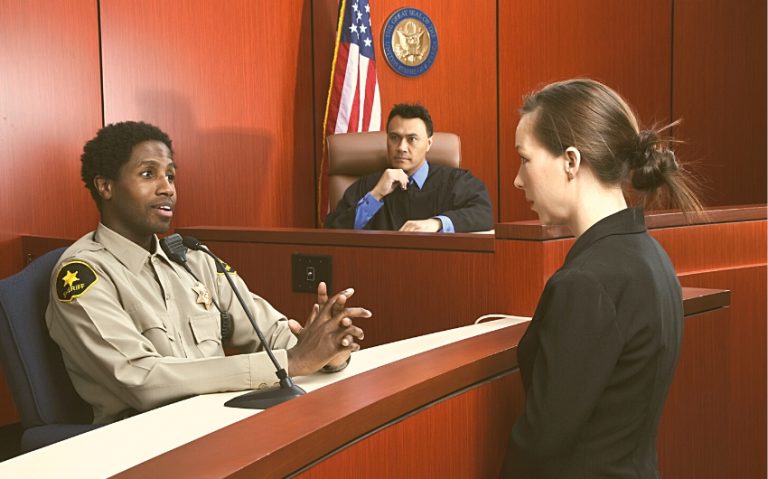
Adultery is a delicate and often emotionally charged issue that can have legal implications. When a marriage is marred by suspicions of infidelity, questions arise about the role of spousal testimony in legal proceedings. We will explore the intricate legal landscape surrounding adultery cases, focusing on whether a husband can testify against his wife. Examining legal precedent, ethical considerations, and the impact on personal relationships, we aim to shed light on a topic that touches the intersection of law and intimacy.
Understanding Spousal Privilege
The concept of spousal privilege, also known as marital privilege, has deep roots in legal systems around the world. This privilege generally prohibits one spouse from testifying against the other in court. The rationale behind this legal doctrine is rooted in the preservation of marital harmony and the idea that spouses should be able to confide in each other without fear that their communications will be used against them in legal proceedings.
However, spousal privilege is not absolute and can be subject to exceptions, depending on the nature of the case and the jurisdiction in question. Adultery cases often bring these exceptions into focus, prompting a closer examination of the delicate balance between legal principles and the nuances of personal relationships.
Admissibility of Evidence
In many legal systems, evidence presented in court must adhere to specific rules and standards to be admissible. While spousal privilege traditionally protects communications between spouses from being disclosed in court, evidence of adultery may fall outside the scope of this protection.
When it comes to testifying against a spouse in an adultery case, the admissibility of evidence depends on factors such as the nature of the evidence, the jurisdiction's laws, and the specific circumstances of the case. Courts may allow testimony related to actions or events that are not considered privileged under spousal communication, such as evidence from third parties or observations that occurred outside the protected realm of marital privacy.
Jurisdictional Variations
Legal systems differ significantly across jurisdictions, and this divergence extends to the rules governing spousal testimony in adultery cases. Some jurisdictions strictly adhere to the principle of spousal privilege, while others may permit spouses to testify against each other under certain circumstances.
In some cases, the injured party may be allowed to waive spousal privilege, providing a legal avenue for a husband to testify against his wife in an adultery case. However, the specific conditions and procedures for waiving spousal privilege can vary, and consulting with legal professionals familiar with the local laws is essential.
The Role of Consent
In situations where a husband wishes to testify against his wife in an adultery case, the issue of consent becomes pivotal. If both spouses voluntarily agree to waive spousal privilege and allow one spouse to testify, it may be permissible under the law.
However, obtaining informed and voluntary consent is crucial, and courts are likely to scrutinize the circumstances surrounding any such agreement. Coercion, duress, or any form of pressure could render the consent invalid, highlighting the importance of approaching such matters with caution and sensitivity.
Ethical Considerations
Beyond the legal aspects, the question of whether a husband should testify against his wife in an adultery case also involves ethical considerations. The dynamics of trust, confidentiality, and the commitment to preserving the sanctity of the marital relationship come into play.
While the law may provide a framework for spousal testimony, individuals must grapple with the potential consequences on their personal relationships. Testifying against a spouse can strain the already fragile fabric of a marriage, leading to irreparable damage. As such, individuals faced with the choice of whether to testify against their spouse must weigh the legal implications against the emotional and relational fallout.
Impact on Divorce Proceedings
Adultery can have profound effects on divorce proceedings, influencing issues such as asset division, spousal support, and child custody. In some jurisdictions, evidence of adultery may be considered a relevant factor in determining the distribution of marital assets or awarding alimony.
If a husband chooses to testify against his wife in an adultery case, the information provided may have far-reaching consequences for the outcome of divorce proceedings. It is essential for individuals to be aware of the potential ramifications and consult with legal professionals to understand the full scope of the impact on their case.
Legal Precedents and Case Law
The question of whether a husband can testify against his wife in an adultery case has been the subject of legal scrutiny in various jurisdictions. Examining relevant case law can provide insights into how courts have approached similar situations in the past.
In some instances, courts have upheld spousal privilege, emphasizing the importance of maintaining the confidentiality of marital communications. In other cases, exceptions to spousal privilege have been recognized, allowing testimony in adultery cases under specific circumstances.
Final Words
In navigating the complex web of adultery cases and the potential for a husband to testify against his wife, the interplay between legal principles, jurisdictional variations, and personal ethics becomes apparent. The delicate balance between preserving the sanctity of marital relationships and seeking justice in legal proceedings underscores the complexity of this issue.
Ultimately, the decision to testify against a spouse in an adultery case is multifaceted, involving legal, ethical, and personal considerations. Individuals grappling with this choice should seek the guidance of legal professionals who can provide tailored advice based on the specific circumstances of their case and the laws governing spousal testimony in their jurisdiction.
As society continues to evolve, so too do legal perspectives on matters of personal relationships. The ongoing conversation around spousal testimony in adultery cases reflects the dynamic nature of the law and its responsiveness to the changing values and expectations of individuals within the context of marriage.
